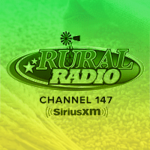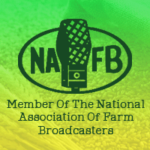OFI 1891: Value Added Products From Cattle Tallow | Kade Cole | Cattle Driver Apothecary

Kade Cole and his wife are health conscious individuals, raising and family and working in a health related field. They both also have a family history and legacy of farming and raising cattle. Being health conscious and raising two young children is what initially led them to start trying to make their own balms, tooth powder and soaps. However, it was the combination of these two things that led them to the development of Cattle Driver Apothecary.
They strongly believe in the products they are making specifically because of what they can leave out of them. They use their own products and have been receiving rave reviews since they launched their business a few months ago. There is an interesting twist on this story as well. Kade states that in the future they would like to purchase their own land and raise their own cattle. However, he is the sole bread winner and is teaching strength and fitness at a local high school. So, that salary will not get it done. Therefore, they looked at the beginning of Cattle Driver Apothecary and small business as they vessel that will take them to that destination.
More Places You Can Listen to Off-Farm Income And Matt Brechwald:










